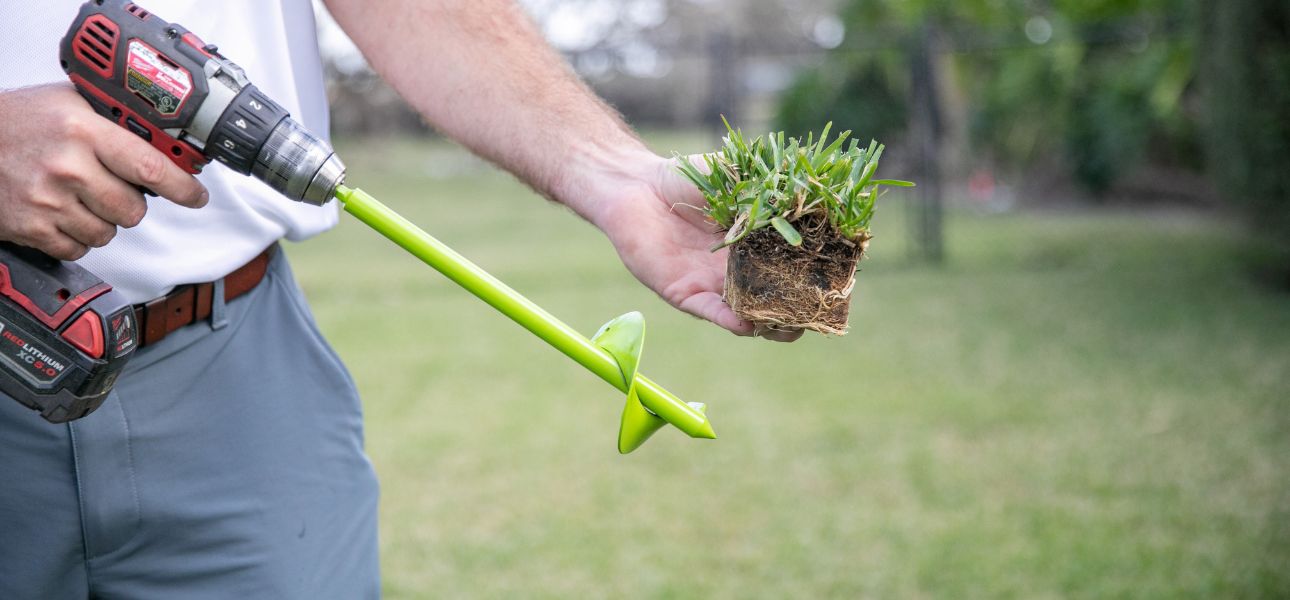Bermuda Grass vs St Augustine: Which One To Choose?

Choosing the right grass for your lawn is the first step to achieving a healthy, beautiful lawn. In Florida and other warmer regions, two of the most widely used options are bermudagrass and St. Augustine grass. These varieties are highly favored for their adaptability to the climate, providing options tailored to your specific lawn needs.
Bermudagrass is known for its durability and vigorous growth—ideal for active yards and high-traffic areas. Meanwhile, St. Augustine is prized for its lush appearance, offering a thick, carpet-like lawn that can tolerate shaded conditions. Understanding the differences between these grasses can help you determine which one is best suited for your yard. This guide will break down the characteristics, growing requirements, and maintenance needs of Bermuda vs. St. Augustine grasses to help you make an informed choice.
What Makes These Grass Types Unique?
Bermudagrass and St. Augustine grass have distinct traits suitable for different landscapes. Bermuda is a sun-loving, drought-tolerant grass variety that thrives in well-lit areas and quickly recovers from wear and tear. St. Augustine grass, in contrast, is known for its thick, lush coverage, with some newer varieties known for their ability to tolerate partial shade.
Bermudagrass – A Durable Option for High-Traffic Lawns
Bermudagrass is great for high-traffic areas and well-lit lawns. It’s perfect for homeowners looking for a durable, fast-growing lawn that can withstand heavy use. While bermudagrass typically requires full sun exposure, some varieties, like the improved Bimini Bermuda, offer better shade tolerance.
Key Benefits of Bermudagrass:
-
Superior durability
-
Vigorous growth and recovery
-
Excellent drought tolerance
-
Perfect for active households
-
Salt-tolerant for coastal areas
St. Augustine Grass – A Dense, Shade-Tolerant Grass
St. Augustine grass is dense and thick-growing, providing an inviting look to your yard. It’s perfect for homeowners who want a plush, green lawn with varying sunlight exposure. Certain varieties like Seville, Palmetto, CitraBlue, and ProVista St. Augustine are bred to tolerate moderate shade, making them an excellent choice for lawns with partial or dappled sun.
Key Benefits of St. Augustine Grass:
-
Rich, blue-green color
-
Dense, plush coverage
-
Some varieties offer improved shade tolerance, making them ideal for areas with less direct sunlight.

Bermuda vs. St. Augustine Care: What’s the Difference?
Bermuda and St. Augustine grasses come in several varieties, with hues ranging from dark green to deep blue-green. Bermuda has a finer texture, while St. Augustine has broader, coarser blades that form a dense, carpet-like lawn. Both grasses spread quickly through stolons and rhizomes, facilitating rapid establishment and thick coverage.
Growing Requirements
St. Augustine grass thrives in warm, humid climates and is best suited for USDA zones 8–10. It adapts well to a variety of soil types, with an ideal pH range of 5.0 to 8.5. Some varieties offer moderate salt tolerance, making it a viable option for certain coastal areas.
Bermudagrass excels in sunny, temperate climates within zones 7-10 and prefers slightly acidic, well-draining soil. It performs well in coastal conditions, and Bimini Bermuda stands out for having the best salt tolerance among bermudagrass varieties—making it especially suitable for sandy, high-salinity environments.
Maintenance and Mowing
Both Bermuda and St. Augustine grasses require regular mowing, watering, and fertilizing to maintain their appearance and resilience against environmental stressors such as foot traffic and drought. This is particularly important during their peak growing season when they need consistent care to stay healthy and lush.
However, their growth rates differ, affecting how often they need mowing. Bermuda grass grows rapidly and usually requires more frequent mowing to keep it well-manicured. St. Augustine grass, while still requiring regular maintenance, has a slower growth rate and can be mowed less often.
Sun and Shade Tolerance
Bermudagrass thrives in direct sunlight, requiring at least 7 to 8 hours of full sun daily. However, it has very low shade tolerance and struggles in areas with limited sunlight. Varieties like Bimini Bermuda have emerged to address this issue, performing better than other varieties in shade tolerance while maintaining durability.
On the other hand, St. Augustine can handle partial shade, due to its broader blades, which allow it to capture more sunlight for photosynthesis. This makes it a better option for yards with trees or structures that block sunlight.
Trimming overgrown shrubs or tree canopies to allow more sunlight to reach the lawn can improve sun exposure in shaded areas. This simple adjustment can help Bermuda and St. Augustine grasses maintain healthier growth in areas with limited direct sunlight.
Drought and Traffic Tolerance
Bimini Bermudagrass is one of the most drought-tolerant warm-season grasses, capable of surviving extended dry periods with minimal watering. It also excels in high-traffic areas, making it a preferred choice for golf courses and sports fields due to its durability and quick recovery from wear.
St. Augustine grass, while resilient, requires more frequent supplemental watering to maintain its lush green appearance, especially during dry spells. It is also more delicate in terms of foot traffic and may need more repair in heavily used areas. However, like a Bermuda lawn, St. Augustine can enter dormancy during prolonged drought, temporarily turning brown to conserve energy until favorable conditions return.
Sod and Grass Plug Options
Both Bermuda and St. Augustine grasses can be established successfully as sod or grass plugs. SodPods grass plugs are an excellent option for repairing patchy areas or establishing a new lawn without investing in a full sod installation. When planting grass plugs, using NutriPod fertilizer for grass can provide essential nutrients, helping them establish faster and promoting strong root growth.

Which Grass is Right for Your Florida Lawn?
Bermuda and St. Augustine grasses can equally create a lush lawn, but your choice ultimately depends on your specific needs. Bermudagrass is the better option if you prioritize durability and frequent use. On the other hand, St. Augustine is a great choice if you require a more shade-tolerant lawn. With proper maintenance, either grass can thrive for years.

No matter which grass type you choose, following a consistent lawn care routine will help maintain a healthy, beautiful lawn. Remember to consider your local climate, sunlight conditions, and maintenance time before making your final decision.
Ready to transform your lawn? For high-quality grass plugs like SodPods, visit the SodPods website and find the best option for your yard today!


